We caught up with the brilliant and insightful Nikki Lanier a few weeks ago and have shared our conversation below.
Nikki, thanks for joining us, excited to have you contributing your stories and insights. Let’s start with the story of your mission. What should we know?
Harper Slade, is named in honor my paternal grandmother, Lenora Harper Robinson and maternal grandmother, Ernestine Johnson Slade who were both trailblazing women in their communities, in their workplaces and in their homes. Both of these stalwart mavericks were VERY much about the business of being black and assured their children, my parents, were similarly focused.
My mother was born and raised in the jim crow south. Marietta Georgia. 1940. She is the fourth of 8 girls born to my grandparents. By age 12, she had mastered 11th grade level work. She was a child prodigy. Mastering violin and piano by age 8, her parents saved enough money, begged and borrowed the rest, to send her to boarding school, hoping to ease the burden of her blackness and permit her an opportunity to concentrate on her studies, rather than surving. Her parents poured all they had into her, their finances, their time, their energy. The other seven girls had to share what was left. It was hard for my mom. She felt guilty for her success….felt as though her sisters suffered to assure her ascention. At 76, she still cries about it. She attended Boggs Academy boarding school in North Carolina from age 11 to 16 and Barber Scotia College from age 16 to 19, She holds he PhD. From Ball State University in British and American Literature with a cognate in Linguistics. She holds a Masters Degree from Indiana University in Bloomington in Art in Teaching. She was awarded a full scholarship for both. She was not permitted to stay on campus though. Her blackness was apparently a problem for some of the other dorm residents. Her first job was teaching at Alabama State University in Montgomery Alabama. It was the height of the civil rights movement. There, she had occasion to see Dr. Martin Luther King, Jr. his house just being a few blocsk from her staff/teacher dormitory. As a state employee she was forbidden to march across the Petis bridge during King’s march from Selma to Montgomery, she did however join the march in Montgomery, technically not marching across the bridge. She later moved to Lincoln University in Jefferson City, MO. And taught in the English department (PHOTO). My mother has had a stellar career in higher education, having held Dean, VP and Vice provost positions in majority and hbcus around the country. She spent most of her career at Hampton University where she was chairwoman of the English department. A role she had when I matriculated there in 1992. My mother has always worked for HBCUs, it was her dream to reach and teach students of color.
My father is from Cincinnati Ohio. (Photo) He was the eldest boy of eight. My father is an unapologetic black nationalist. The problem is, he is insanely sweet and gentle. I can’t recall ever hearing my father raise his voice. I don’t know if he is capable of frowning. At age 18 he left home to attend college at Central State University and desiring to immerse himself in the heart of the civil rights movement, later transferred to Philander Smith University in Little Rock, Ark. That year was 1961…Jim Crow South, the heat of the Civil Rights Movement. My dad is super sweet but he is no coward. While in college, my father was active with the SNCC…overcome by the passionate rhetoric of Stokley Carmichael and other believers in the principles of non violent movement but the efficacy of standing up for your rights, my dad was hooked. It took him six years to complete college. Not because he was base but because he was a true freedom fighter. Taking semesters off to register blacks to vote in Helena, Arkansas and Jackson, Mississippi, running from the KKK in Alabama, meeting Dr. King and Andrew Jackson in Atlanta and of course, all of the jail time he enjoyed for his endless site-ins, it’s a wonder he ever did a lick of homework and graduated at all. By the time he finished registering blacks to vote, hiding in the woods from law enforcement and avoiding the various lynchmobs that were a part of the southern tapestry, my dad missed a full year of college. Never believed in turning the other cheeks, as Dr. King would espouse, he would suggest that the civil rights victories came after black and white blood was shed. Period. These were my stories that I heard around the dinner table growing up, quite different, I am sure, from the discussions you might have heard during your adolescence. Growing up, I never hated white people but I was absolutely afraid of them as a by product of asking my parents simple questions, on a fairly regular basis about their childhood, teenage and college years.
Both of my parents were civil rights activists, dad, moreso than mom but to be clear, both have been jailed for seeking freedom, both have been hosed for seeking freedom, both have been spat upon during sit-ins in all white restaurants, and both have been attacked by police dogs during protests…. in their home country. They met while working at Lincoln University, a historically black university in Jefferson City, MO. The year was 1967. They married in 1968, 48 years ago.
My dad grew up in higher ed too. He was on the administrative side and mom, the academic. Dad was the Dean of Financial Aid, Dean of Students, Dean of Support Services and led, for while, Hampton University’s Business Assistance Center.
I was born in Jefferson City, MO (PHOTO) I am an only child, for now… I did well in school. I did just as I was told, most days. As I kid, I played violin, I sang in the choir, I was always on honor roll, I worked all through high school and college. I was a relatively shinny child…especially in middle school when my war with acne was raging (photo). I had a true middle class upbringing. I regard myself as hailing from Hampton, Virginia only because that’s where I spent my middle, high school and college years. It was wonderful. I was a teenager from 1983-1989. The best years of fashion and music, as far as I am concerned. Hip Hop Music was bursting on the scene at the same time as Hall and Oates and Wham….Wake me Up before you go-go. Prince, Michael Jackson’s Off the Wall album. Leg warmers, two-toned jeans, Members only jackets, penny loafers. Oh, that was the time. My mom was chairwoman of the English Department of Hampton University, the nations most well endowed HBCU and so mom would host conferences featuring renowed black writers and poets, Toni Cade Bambara, Nikki Giovanni (a personal friend of my dads), Amiri Baraka and James Baldwin. They would all stay on our house, a 150 year old stately three story Victorian home right smack dab on the campus of HU…a faculty house. That’s where I grew up. I will never forget the time when I came home from a movie with my friends and my mother was hosting a dinner party with Maya Angelou as her guest. There were about 15 people there from all across the University and the community. The topic of conversation, my most recent English Essay. I got a B on that damn thing and mom and Dr. Angleou made me sit there as they shared with me how I could have received an A. Mom had the essay at the table for all to read and her guests felt entirely empowered sharing their views regarding the obvious reasons for my “failure”…Something about too many dangling participles, comma splices and clearly no real understanding of how to properly use the subjective tense. I was mortified.
Beyond the insistence on literary and linguistic prowess, My mom was hell bent on my being a lady…young ladies do this and young ladies do that…always commenting on my posture, my overuses of colloquiums and local jargon, my desire to wear jeans to early (Junior high) and my desire to abandon the damn violin. Mom,” I am 13” I would say. “How old was Chopan when he came to prominence?” She would say. Stick with it.
She was also dedicated to my being proud of my skin. I remember taking baths as a young kid and my mom sitting on the sink and saying things like. “Look at those beautiful brown arms”. Be sure to wash your gorgeous brown legs”. Then once I was out of the tub, mom would help me lotion my face by complimenting me on my beautifully African nose. She wanted me to be prideful and not ashamed of my skin. This was the early 1970s and moms concern, as I came to understand later in life, was that I be hyper affirmed at home as when I stepped outside of the house, I likely wouldn’t be. She would say, You won’t see yourself on the cover of magazines, on billboards, on commercial TV, teaching in the classroom, at the orchestra rehearsal, you wont drive over bridges or on roads named in honor of anyone who looks like you. The history about your heritage that you read at school will be lackluster and largely inaccurate….you won’t have any affirmation of how beautiful you are and how beautiful your skin is or your relevance so yeah, keep putting that lotion on those beautiful black ashy elbows.
This assignment, to serve as a racial equity advisor, was passed to me en utero. My practitioning lens is informed by my experience as a labor and employment attorney, previous human resources and Federal Reserve executive but my motivation for this work is absolutely rooted in my upbringing.

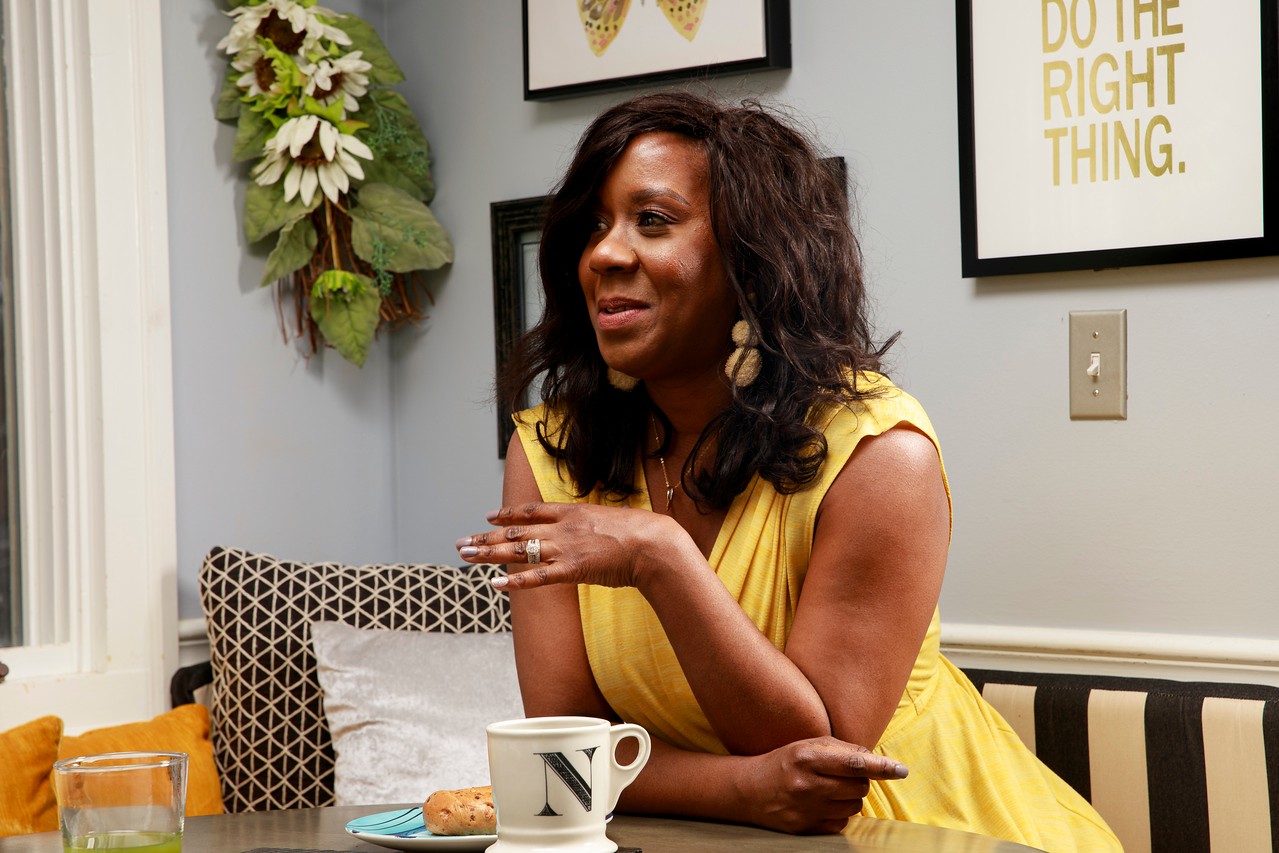
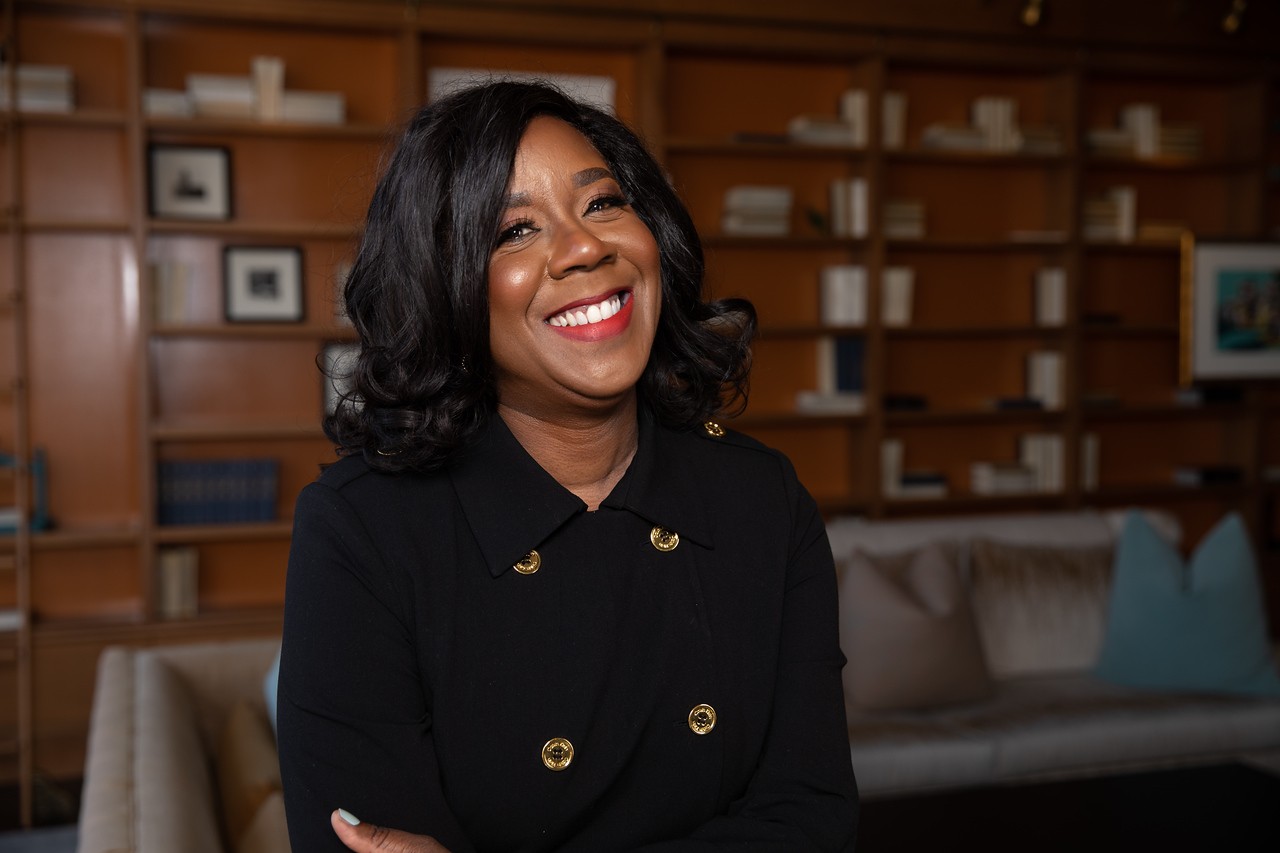
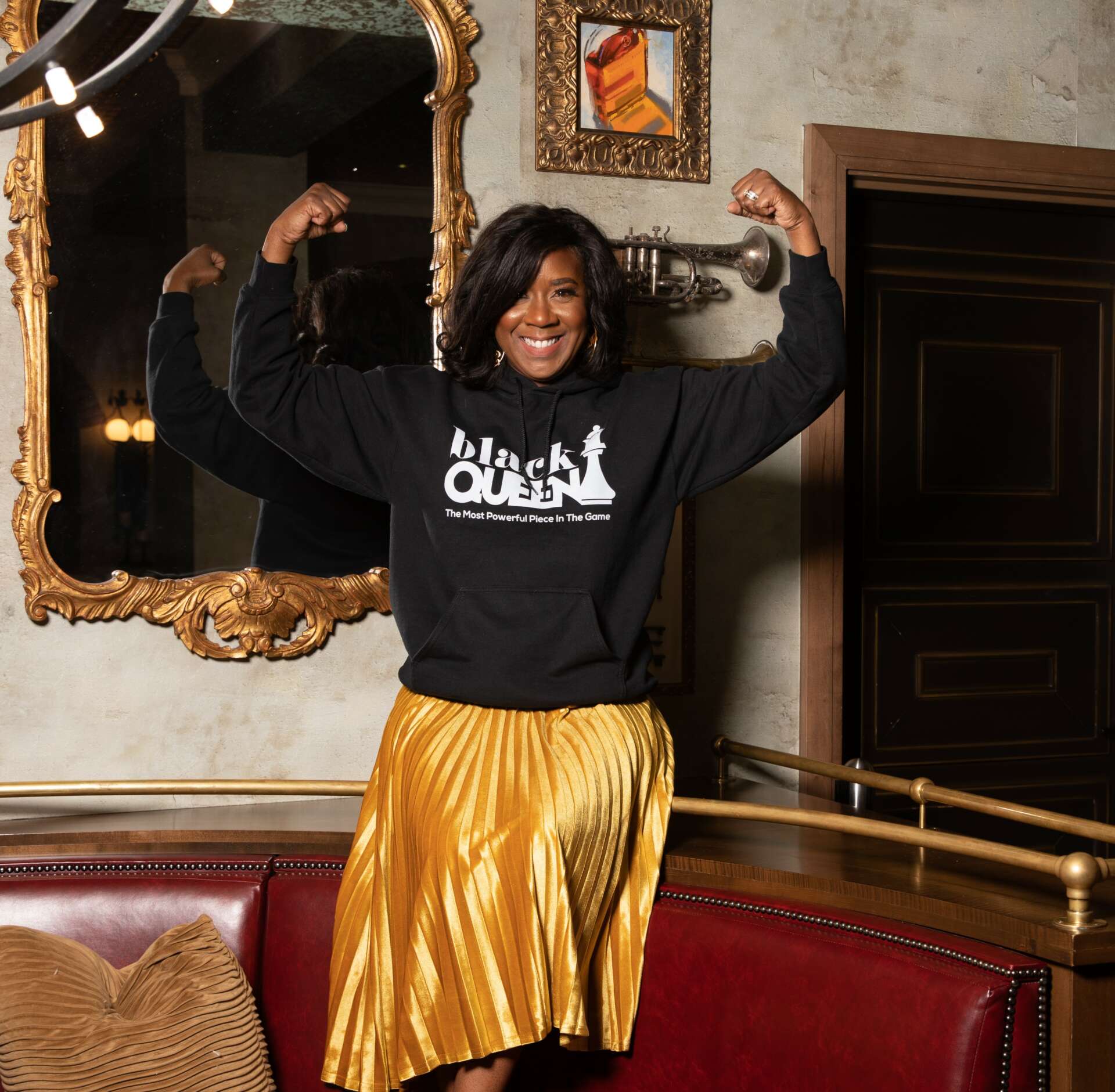
As always, we appreciate you sharing your insights and we’ve got a few more questions for you, but before we get to all of that can you take a minute to introduce yourself and give our readers some of your back background and context?
Harper Slade is the fastest growing and one of the most well recognized racial equity advisory firms in the US. We believe that racism is an economic issue. Its pervasive thread throughout the fabric of the American workplace has stunted overall
economic growth in the US and will continue to be wildly detrimental as the country becomes blacker and browner.
Let us show you how you can leverage the advancing demography by building a more engaged workforce and managing
your talent solutions, all focused around racial equity. It’s important for your business and our overall economic well
being.
Harper Slade is the only racial equity advisory company led by a:
✔️3x CHRO
✔️trusted advisor to Governors, Mayors, Federal Reserve Bank presidents, Fortune 500 CEOs , College and University
presidents
✔️previous employment attorney
✔️internationally recognized speaker and thought leader on HR, DEI, Racial Equity and the workplace
Experienced in both the public and private sectors with large and small organizations
spanning both coasts of the US; 20+ years experience in Human Resources and employment law and having served as a CSuite Executive with The Federal Reserve Central Bank, Harper Slade’s CEO is uniquely suited to support any individual
and organizational pursuit toward deeper racial equity.
We have a firm understanding of the link between inequity and economics at the micro and macro level.
Can you tell us about a time you’ve had to pivot?
2022 was the ultimate professional pivot of my life. It was the year my company, Harper Slade Racial Equity Advisory, was launched. This move was predicated on the events of 2020, which proved to be the ultimate spiritual pivot of my life. 2022 was the year that sat us all down; the year that our lives were turned upside down by a global pandemic and we were met, finally, in the most acute and horrific way, with long awaited racial reckoning, having no place to escape the juxtaposition of who we are, relative to race and racism, against who we believed ourselves to be. For me, living working, and ostensibly thriving in Louisville Kentucky, where Breonna Taylor was killed and where the epicenter of unrest was most acutely manifested, I was a community leader, Federal Reserve executive, and Advisor focused on helping our governmental officials, business and community executives navigate the outpouring of what happens when black pain and anguish meet desperation and hopelessness. At the same time, I was navigating my own sense of rejection and quietly trying to resolve the absence of safety that I have always felt as a black human; thinking about Breonna, George and Amaud–what their absence means to their families, to my family and to me. I had to come face-to-face with the reality that, in the end, there is no difference between their blackness and mine. I participated in my first ever spiritual fast; asking God for clarity on what I am to do with whatever life I have left to live and with whatever professional potency I am to share and how best to use it for purposes of remediating what I believe to be our world’s most evergreen, persistent and economically consequential sin, racism. At the conclusion of that 60 day fast, the vision for Harper Slade Racial Equity Advisory, was born.
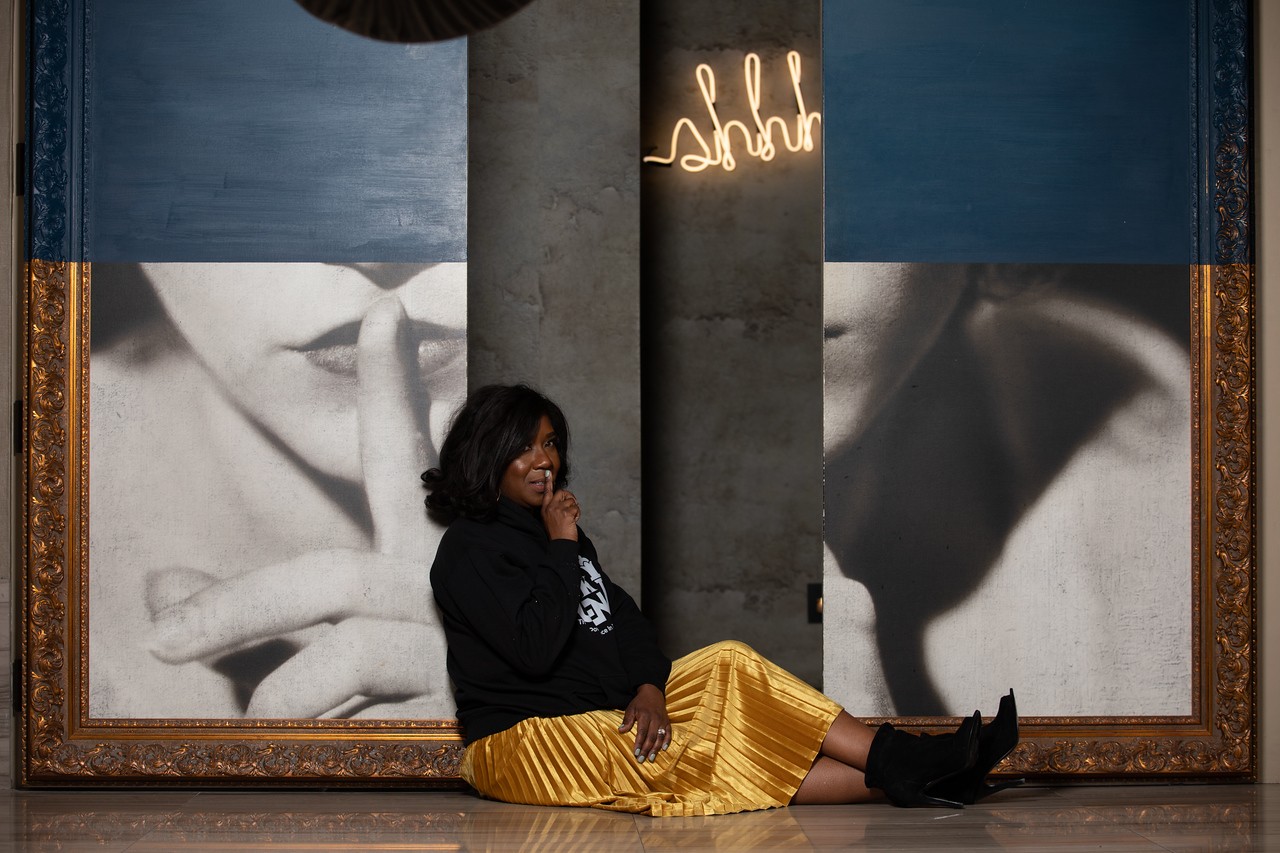
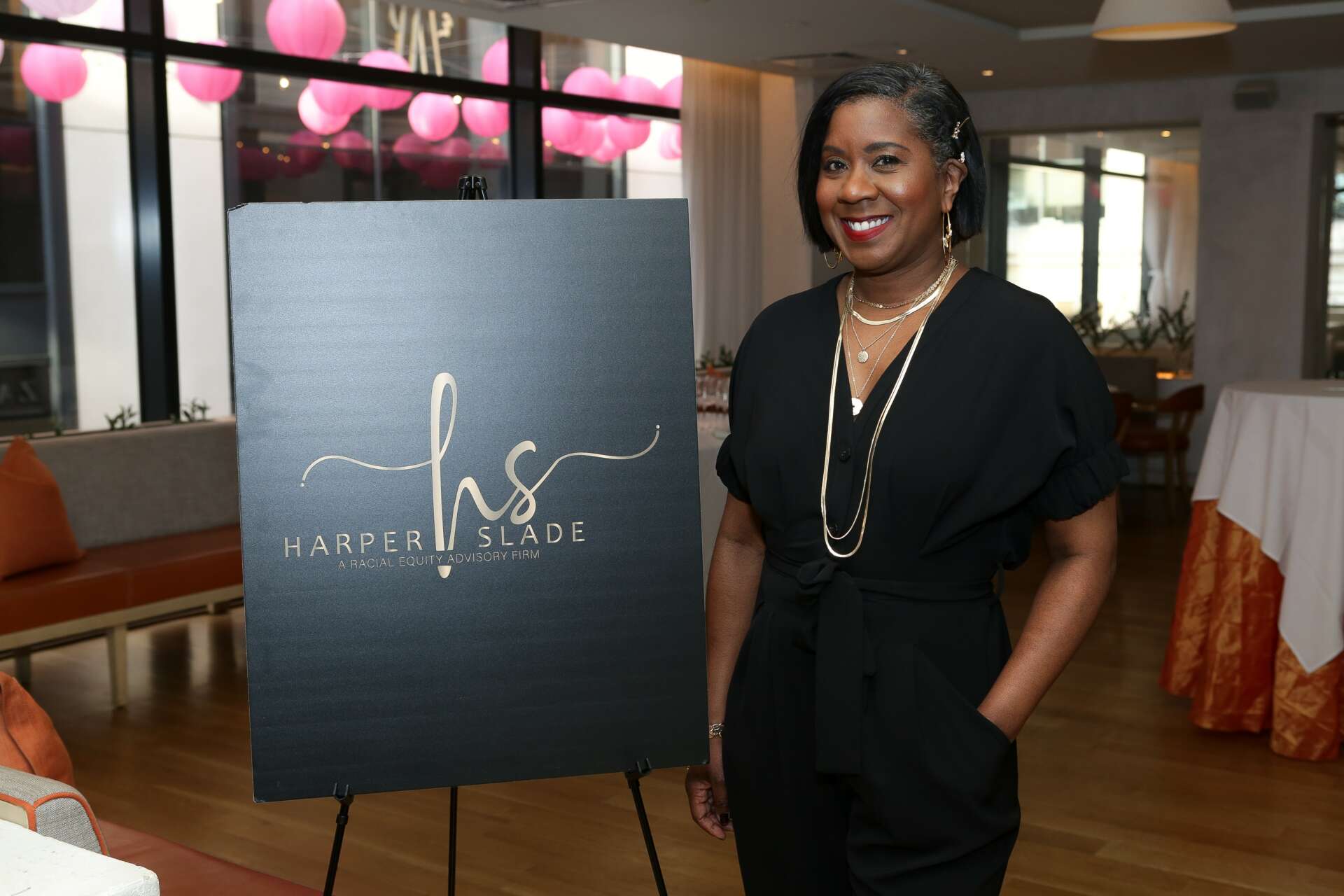
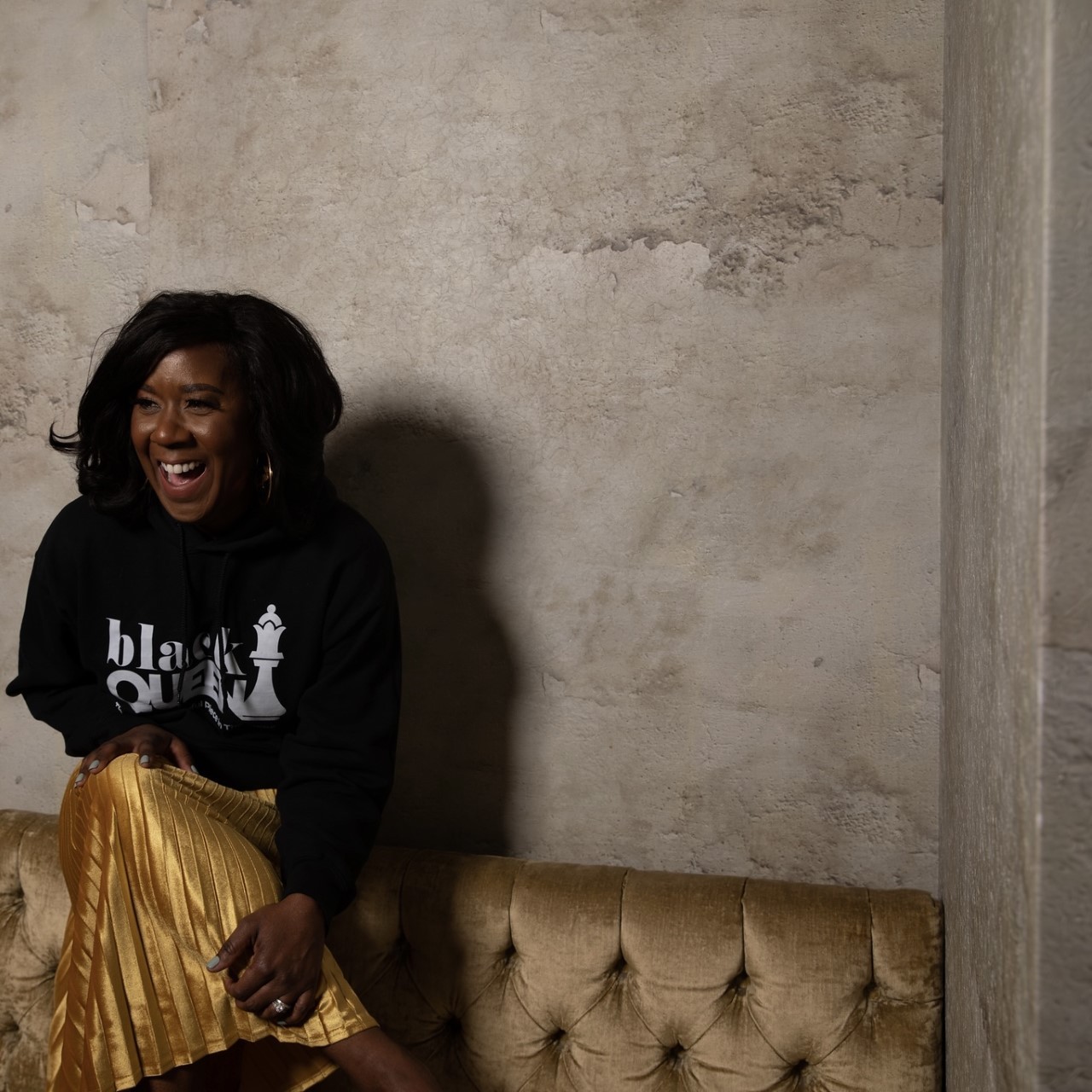
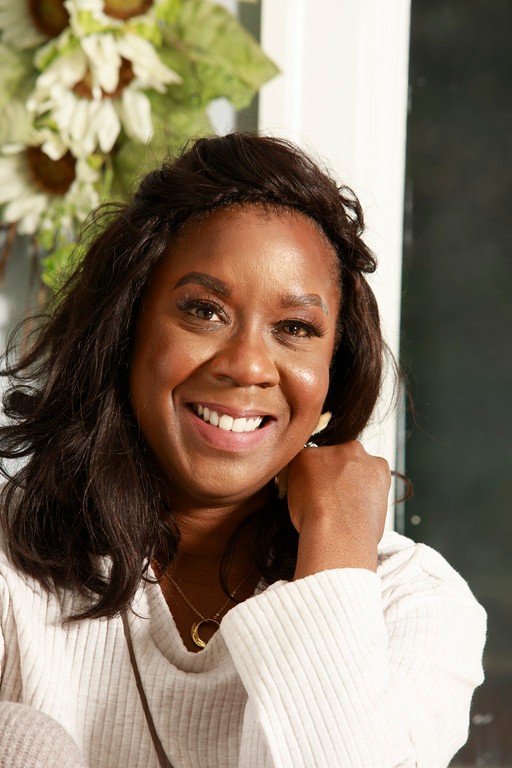
Where do you think you get most of your clients from?
Without equivocation, speaking engagements are my primary source for new clients. There are a few reasons for this. First, I am am a fairly engrossing speaker. I’ve been speaking publicly since I was a child. Having been raised by two collegiate professors and specifically a mother who served as a collegiate English department chairperson and who holds a PhD in literature, her mission was to assure my speaking credentials were impeccable even as a child. I’ve also had a great fortune of holding many positions in my career requiring that I speak on behalf of other organizations, in a multitude of settings and with various audiences. In fact, I quite enjoy public speaking to include the storytelling opportunities that are inherent in it. In addition, as I am acutely aware of the doctrine that I now espouse–, that is at a very high level the eradication of racism and, at a corporate level, the promulgation of DEI strategies, it is very easy for me, as a black woman, to be viewed as threatening, one-dimensional, erratic, and angry. By virtue of my style and disposition, I am none of those things which is fairly easily discerned when hearing me speak on these topics, thereby making it a bit easier to connect with me and the content that I am espousing ,without the typically assigned narrative. That is not to say I never fall victim to the prevailing narrative of black women in general. It is to say, when hearing me speak, some of those expectations, especially with this doctrine, are diminished.
Contact Info:
- Website: www.nikkilanier.com
- Instagram: https://www.instagram.com/drnikkilanier/
- Facebook: https://www.facebook.com/nikkirlanier
- Linkedin: https://www.linkedin.com/in/dr-nikki-r-6a106a8/
- Youtube: https://www.youtube.com/@harpersladeracialequityadv1550
- Other: www.harperslade.com
Image Credits
Image credit: Miguel Hampton


